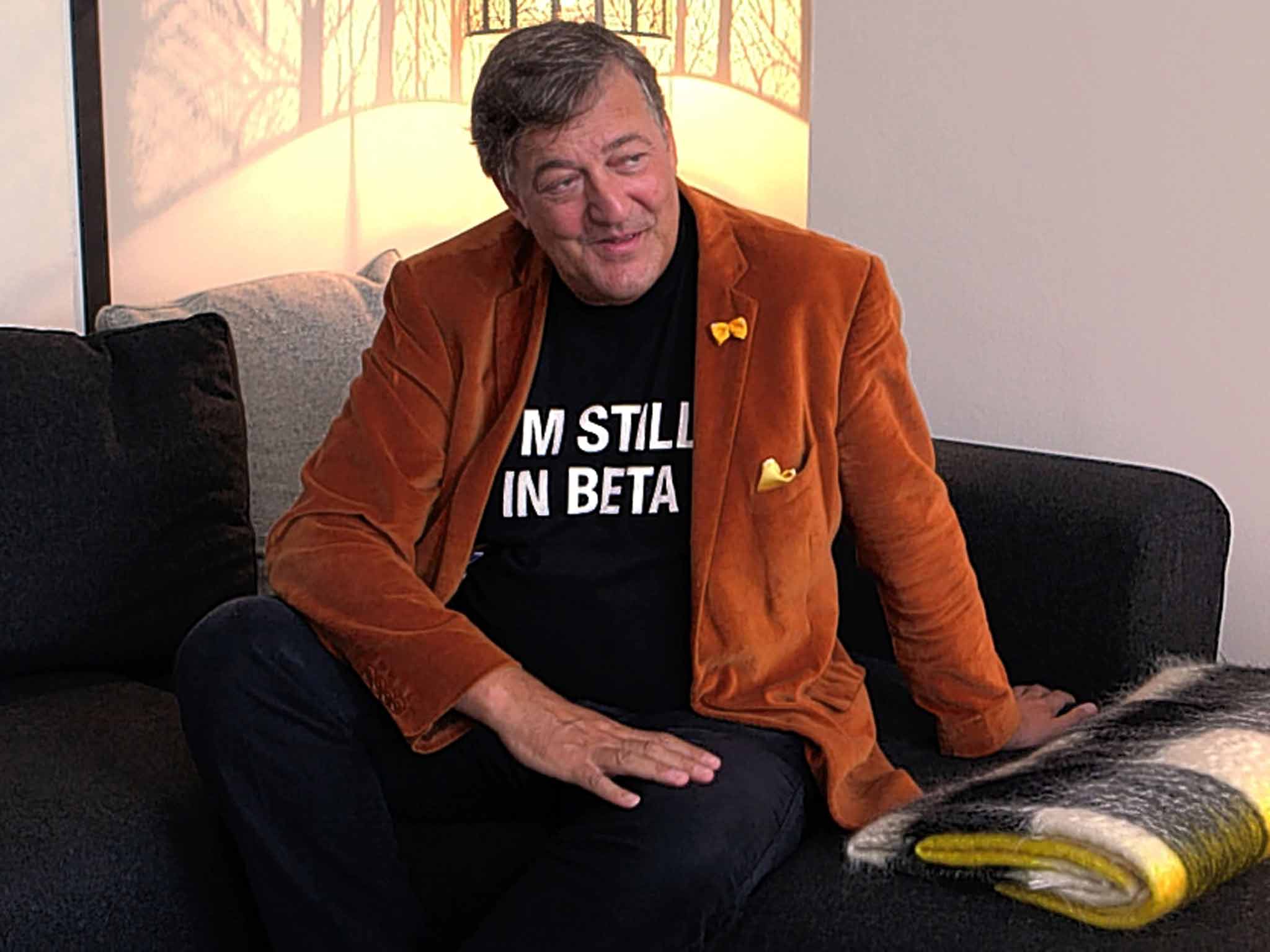The Not So Secret Life of the Manic Depressive: 10 Years On, TV review, Stephen Fry is still helping to get the message across on mental health
A decade after his 2006 documentary, Stephen Fry looked at how attitudes and awareness around mental health have changed in this important film

Your support helps us to tell the story
From reproductive rights to climate change to Big Tech, The Independent is on the ground when the story is developing. Whether it's investigating the financials of Elon Musk's pro-Trump PAC or producing our latest documentary, 'The A Word', which shines a light on the American women fighting for reproductive rights, we know how important it is to parse out the facts from the messaging.
At such a critical moment in US history, we need reporters on the ground. Your donation allows us to keep sending journalists to speak to both sides of the story.
The Independent is trusted by Americans across the entire political spectrum. And unlike many other quality news outlets, we choose not to lock Americans out of our reporting and analysis with paywalls. We believe quality journalism should be available to everyone, paid for by those who can afford it.
Your support makes all the difference.On the same day that we heard that NHS England will commit to investing an extra £1 billion a year to improve mental health services, this documentary moved the national conversation away from problems around access to treatment – worth more programmes in its own right– to focus on the day-to-day experiences of those living with bipolar. The result was a memorable film, part of the BBC’s commendable In the Mind season, that everyone could benefit from watching.
As he did in his ground-breaking 2006 film, Stephen Fry set the tone with a frank recall of his 2012 suicide attempt. It was hard to reconcile the composed, rational man on the screen with the one that was found on the floor in a Uganda hotel comatose from pills and vodka. But this was as much, if not more, about the non-celebrity subjects. There was Cordelia who’d appeared in Fry’s original film, now in her mid-thirties and with terminal cancer, but it was the bipolar that floored her. “We’ve given up hoping for things now. We’re just trying to have as much fun as we can,” said her mother, face a blank mask. We watched as she led her daughter by the hand around the zoo to calm her, then comfort her as she suffered a low.
We met Rachel who was in a wheelchair after jumping off a balcony as a teenager thinking she could fly. At the time, she was in the midst of an undiagnosed high caused by bipolar disorder. It was only after her second attempt at taking flight that her condition was fully diagnosed. Now she was working as a support worker with other people with mental health problems. She was a positive force, yet still got daily reminders that her condition will never be “cured”, not least when she had to sign a form to agree to be sectioned. If it ever came to that.
Alika, like Rachel, had found positives in his experience: he used a manic episode that went viral as a springboard for talking in schools. The kids laughed at first but you could see that they were trying hard to get their heads around this complex condition with his crushing lows and manic highs. To me, it showed things have changed: no one talked about mental health when I was at school. The fact that Alika and Rachel can discuss their diagnosis openly with their peers shows that things are heading in the right direction.
Elsewhere. Scott had problems finding a medication that worked for him. We saw him starting on–and crucially sticking with– a course of lithium. It might be the medication of choice for Carrie from Homeland, but it won’t make everyone ready to fight terrorists. For Scott, it simply meant he could go into town with his kids instead of cowering in the car.
The message was clear across the board: there is no quick fix for mental health and no catch-all solution “It’s never going to get off my back, this monkey, it’s always going to be there," said Fry. The good thing about films like this, headed by a name like his, is that they can help us all to understand that.
Join our commenting forum
Join thought-provoking conversations, follow other Independent readers and see their replies
Comments